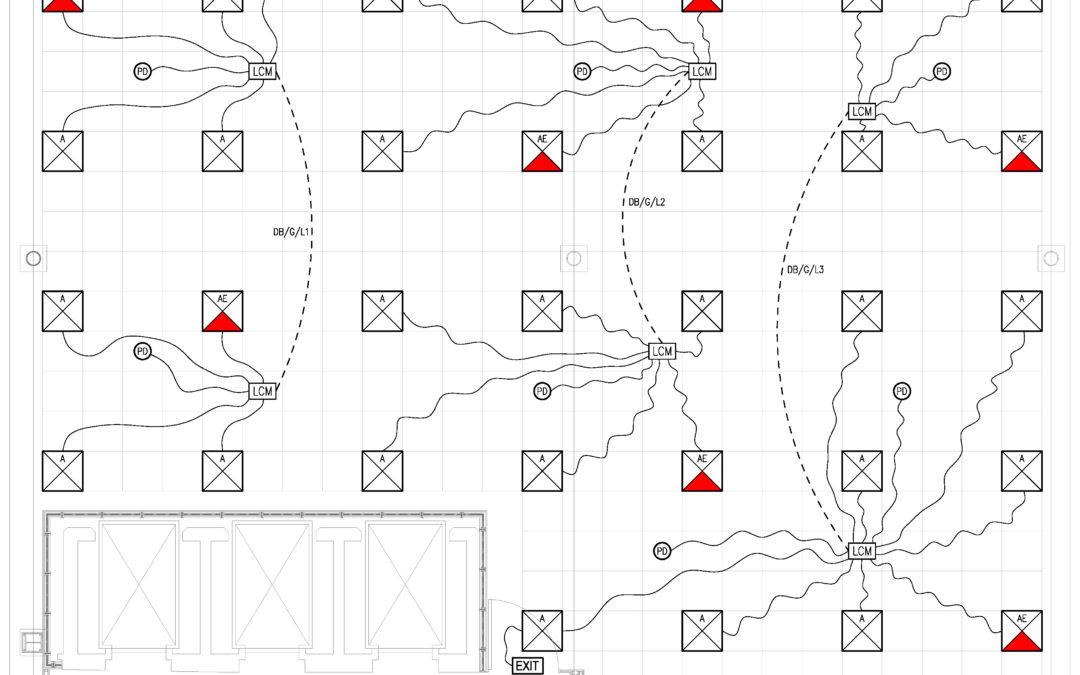I am been privileged to work in the building services industry for the last four years. I started my journey by working as an intern at the former Howard Humphreys Ltd (now Atkins). This was a post university internship. I had previously been in three other internships in different industries while still an undergraduate student. I have listed the places here.
Working at Howard Humphreys Ltd was an eye opener. It is was my first time to be introduced to the design aspects of engineering. For once, I could understand lighting design and appreciate how illumination principles I learnt while student were now relevant. Power design, cable sizing, generator sizing, fire alarm design, audio visual systems designs. What shocked me was the fact that I had to learn the practical principles from scratch. It was my first time to learn how to use AutoCAD and late Revit MEP.I wondered why we were never taught these things in school. How to do design for Public Address systems, Structured Cabling, CCTV Systems design. Yet, building services is one of the few industries where engineers could actually design practical systems that matter. We don’t manufacture microprocessors or transistors, yet this and many other concepts were/are the mainstay of the education system. Not that there is anything wrong with being taught these! The concern is that we should train to serve the already existing market in our developing country.
What was the missing link? Was it only my university where electrical engineering students are not taught these skills? Years later I have established that no university in Kenya teaches these skills to their electrical engineering undergraduate students. Graduates have to learn on the Job. While we were taught a unit, say, Electro-acoustics, no one related it to the industry! Somebody should have linked this with Audio Visual and Public Address systems design.
And with the burgeoning construction industry, is it any wonder that we are now importing foreign workers to carry out these works?
Interestingly, I have found myself teaching building services electrical to non-electrical engineering students. I have taught these skills/concepts to quantity survey and construction management students. Now is the time syllabuses were revised and this unit incorporated in the electrical departments’ syllabus in our universities. I will list the main topics below. It is a very wide field and it can be taught in stages. It is also time more focus was given to design software such as AutoCAD, Revit MEP and less on manual graphics that are rarely used in practice.
Possible Topics.
- Lighting and Lighting Design.
- Power and Power Design.
- Fire Alarms Systems Design.
- Public Address & Audio Visual/IP TV.
- CCTV Systems Design.
- Access Control Systems Design.
- Electric Fence Systems Design.
- Other Security Systems such as Turnstiles, Bollards & Traps, UVIS (Under Vehicle Inspection System).
- Structured Cabling Installations.
- Generator Installations.
- Lightning Protection.
- Solar Energy Systems Installations.
- Building Management System (BMS).
- Design Software such as AutoCAD, Revit MEP, DiaLUX.
- Bills of Quantity and Value Engineering.
- Cost Estimating and Tendering Process.
Whether one would be aspiring to become a design engineer. Learning these would come handy and bring sanity to the industry. One way to ensure these practical skills and concepts are taught is by ensuring that universities employ practicing staff or staff that have demonstrable industrial experience. The respective departments would also need to encourage the staff to practice while they teach if possible. This is engineering and students should be made to have a feel of how practical their course is!
Other prestigious professions such as Law and Medicine have shown the way. Lawyers are largely taught by practicing advocates who may even have doctorates. Medicine students are taught by practicing medical doctors. Why not for engineering and especially electrical engineering?


Well put, there is a lot the industry expects from electrical engineering graduates yet we have less to offer as fresh graduates
well said. Now I have a request that those who have graduated be given an opportunity to be in touch with experienced engineers in the field with ease. e.g, how can I get you we share the skills, please?